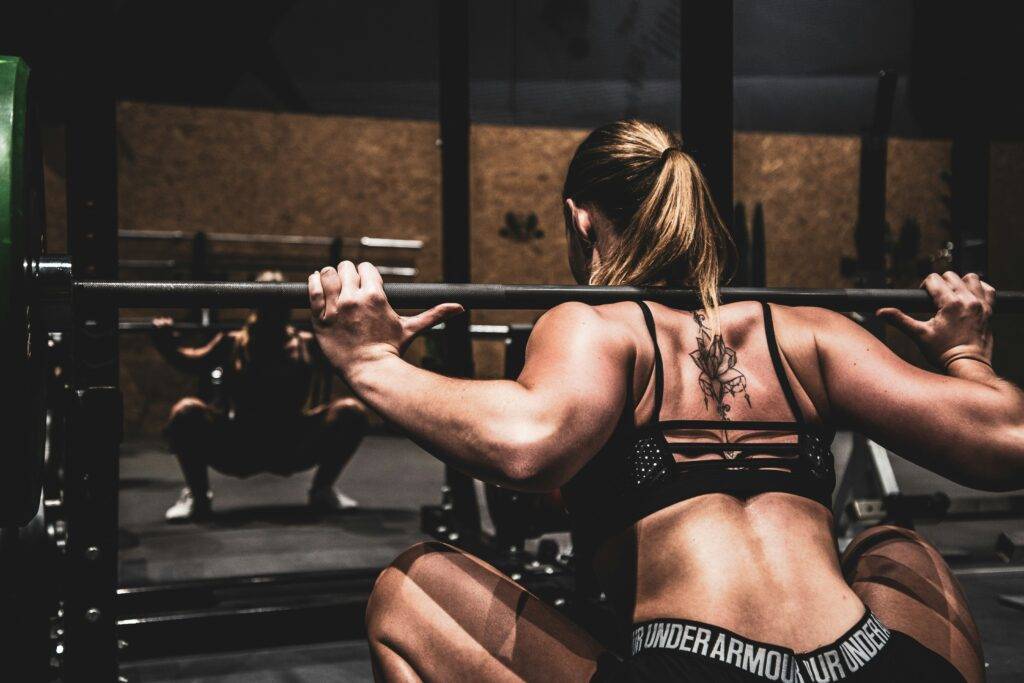Discover the best creatine supplement for menopausal women to support muscle mass, energy, brain health and overall well-being in a balanced lifestyle.
Understanding Menopause and Its Impact on Women’s Health
Menopause is an important change in a woman’s life. It usually happens between the ages of 45 and 55. During this time, the ovaries slowly make less estrogen. This hormonal shift leads to various physiological changes, which can profoundly impact a woman’s overall health.
Some common symptoms of menopause are weight gain, muscle loss, trouble sleeping, and low energy levels. These effects link to changes in hormones caused by aging. These changes may also lead to more inflammation and oxidative stress in the body.
One significant concern for menopausal women is losing muscle mass. This can lead to less strength and a higher risk of injury. Researchers have shown that creatine supplementation, particularly creatine monohydrate, supports the retention of lean body mass and enhances muscle performance during this critical period.
By supplementing with creatine, women can potentially mitigate the effects of muscle loss while supporting their overall fitness goals. Furthermore, its combination with resistance training can yield better outcomes in maintaining muscle function and improving body composition.
Many women also have trouble sleeping during menopause. This can cause fatigue and a condition often called “brain fog.” These cognitive challenges can significantly diminish daily function and quality of life.
Studies show that the right doses of creatine can help reduce mental fatigue. It can also improve cognitive function. Creatine may enhance brain function by providing energy for brain cells. Moreover, the use of this supplement may alleviate some symptoms related to mood changes, emphasizing the holistic benefits of creatine supplementation for menopausal women.
Addressing nutrition, and physical activity, and considering effective supplements like creatine are crucial strategies for managing the physiological changes of menopause. By adopting a comprehensive approach to health, women can better navigate this transition and maintain their well-being.
What is Creatine and How Does It Work?
Creatine is a natural compound found mainly in the muscles. It plays an important role in how the body uses energy. Scientists synthesize it from the amino acids glycine and arginine.
In physical activity, creatine is important for making adenosine triphosphate (ATP). ATP is the energy source for cells. This is especially important during high-intensity, short activities like sprinting or lifting weights. The best creatine supplement for menopausal women can help maintain muscle mass and overall physical function.
For menopausal women, who may experience changes such as decreased muscle mass, sleep deprivation, and hormonal fluctuations, creatine supplementation offers potential benefits. Research indicates that supplementing with creatine can help enhance muscle mass when combined with resistance training.
It may also reduce mental fatigue and improve thinking skills. It does this by lowering inflammation and oxidative stress, which are common during menopause. Taking creatine every day, especially during the loading phase, can improve muscle and brain health.
Studies have shown that creatine monohydrate is the most researched type of creatine. It helps improve muscle strength and recovery. It also aids in cognitive performance. This is especially significant as women may encounter brain fog and other cognitive declines during this life stage.
Furthermore, the supplementation of creatine can assist in maintaining lean body mass and improving overall physical performance. Creatine offers benefits beyond just building muscle. It can also help with mental well-being. This makes it a useful supplement for those going through menopause.
Top Creatine Supplements for Menopausal Women
For menopausal women who want to improve their physical performance and health, choosing the right creatine supplement is important. Here, I present a selection of some of the best creatine supplements specifically formulated for this demographic. I evaluated each option based on ingredient transparency, effectiveness, recommended dosing, and additional benefits.
The first product on our list is Optimum Nutrition Creatine Powder, well-known for its high-quality creatine monohydrate. This supplement is simple and has no additives.
It provides pure creatine to keep muscle mass and lean body mass. The recommended daily dose is usually 5 grams. This makes it easy to add to any routine without a complex loading phase. Users also report improved recovery times, which can be essential when dealing with the challenges of menopause.
Next, we have MuscleTech Platinum Creatine Monohydrate. This supplement boasts excellent ingredient transparency and supports energy levels during workouts. The combination of creatine with resistance training can help mitigate weight gain often experienced during menopause.
Researchers know that creatine improves performance. It also helps reduce inflammation and oxidative stress in the body.
Another good option is Bulk Supplements’ Creatine Monohydrate. Unflavored, so you can easily mix it into any drink.
This product is ideal for those aiming to combat brain fog and improve cognitive function during menopause. The amino acids released during intense exercise improve brain function. They can also help reduce mental fatigue. This makes them great for women’s holistic health needs.
Finally, Jarrow Formulas Creatine Monohydrate offers a reliable option that supports both muscle building and brain health. People know this supplement for boosting brain function. It also offers the usual benefits of creatine, like more energy during workouts. Many users appreciate that it requires no loading phase, simplifying daily supplementation.
When choosing the best creatine supplement for menopausal women, focus on purity, ease of use, and extra health benefits. The products mentioned are some of the best options available. They can help improve performance during this important time in life.
Tips for Adding Creatine Into Your Diet
When choosing the best creatine supplement for menopausal women, it is important to know how to use creatine daily. This will not only maximize the benefits of creatine supplementation but also support overall health during the menopausal transition.
One effective method involves adhering to recommended doses of creatine, typically ranging from 3 to 5 grams per day. This daily dose can help maintain muscle mass and energy levels, which may fluctuate during menopause.
Another aspect to consider is the timing and context in which creatine is taken. Many experts suggest that taking creatine around workout times can enhance its effectiveness, especially when combined with resistance training.
The muscle-building potential of creatine monohydrate is most pronounced when supplemented with a targeted exercise program. Taking creatine with carbs, especially during or after a workout, can improve absorption and boost lean muscle gains.
It is also worth noting the importance of a tailored approach to diet and lifestyle during menopause. Including amino acids from protein-rich foods can complement the effects of creatine supplementation.
Incorporate nutrient-dense meals rich in antioxidants and anti-inflammatory properties to manage symptoms associated with menopause, such as inflammation and oxidative stress.
A consistent sleep routine can enhance creatine’s benefits by supporting recovery and brain function. Staying hydrated may also help prevent side effects like weight gain and muscle cramps.
Ultimately, the journey to finding the best creatine supplement for menopausal women involves understanding how to effectively incorporate this powerful aid into a well-rounded lifestyle.
By making conscious dietary choices and engaging in exercise, individuals can enhance their experience with creatine supplementation while navigating menopause.
Internal Links for Further Reading
- Does Creatine Help with Brain Fog?
- What Brand of Creatine Is the Most Effective?
- How to Take Creatine for Beginners
- Is Creatine Safe for the Kidneys?

Mohammad Nazif Uddin is a Marketing and Supply Chain Management student and fitness enthusiast with over 5 years of bodybuilding experience. As the founder of Muscle Theory, he shares practical insights on fitness supplements to help others make informed choices and achieve their goals safely.

